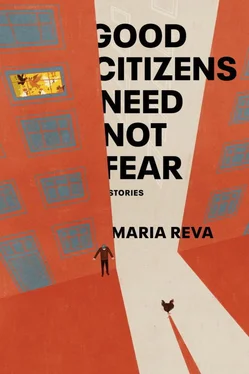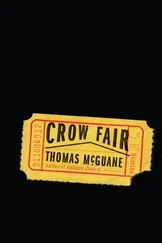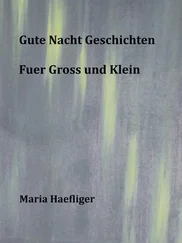Maria Reva - Good Citizens Need Not Fear - Stories
Здесь есть возможность читать онлайн «Maria Reva - Good Citizens Need Not Fear - Stories» весь текст электронной книги совершенно бесплатно (целиком полную версию без сокращений). В некоторых случаях можно слушать аудио, скачать через торрент в формате fb2 и присутствует краткое содержание. Город: New York, Год выпуска: 2020, ISBN: 2020, Издательство: Doubleday, Жанр: Современная проза, humor_satire, на английском языке. Описание произведения, (предисловие) а так же отзывы посетителей доступны на портале библиотеки ЛибКат.
- Название:Good Citizens Need Not Fear: Stories
- Автор:
- Издательство:Doubleday
- Жанр:
- Год:2020
- Город:New York
- ISBN:978-0-38554-529-7
- Рейтинг книги:3 / 5. Голосов: 1
-
Избранное:Добавить в избранное
- Отзывы:
-
Ваша оценка:
- 60
- 1
- 2
- 3
- 4
- 5
Good Citizens Need Not Fear: Stories: краткое содержание, описание и аннотация
Предлагаем к чтению аннотацию, описание, краткое содержание или предисловие (зависит от того, что написал сам автор книги «Good Citizens Need Not Fear: Stories»). Если вы не нашли необходимую информацию о книге — напишите в комментариях, мы постараемся отыскать её.
Good Citizens Need Not Fear: Stories — читать онлайн бесплатно полную книгу (весь текст) целиком
Ниже представлен текст книги, разбитый по страницам. Система сохранения места последней прочитанной страницы, позволяет с удобством читать онлайн бесплатно книгу «Good Citizens Need Not Fear: Stories», без необходимости каждый раз заново искать на чём Вы остановились. Поставьте закладку, и сможете в любой момент перейти на страницу, на которой закончили чтение.
Интервал:
Закладка:
I paused and considered the wretched creature: legless, not much larger than a toddler, it screamed at me soundlessly, brown skin taut around its lipless mouth. Konstantyn Illych had told me that the saint belonged to his foster child, but not how she’d gained possession of it, and I had no desire to inquire further.
Things I’d have rather touched: a lamp full of dead insects, swamp scum, the raw cavern of an alley cat’s ear, the slimy inside of a toilet plunger in a public bathroom that had run out of soap. I could have spent the morning bargaining against my fate, if only there had been someone to bargain with.
(I had watched the pilgrims trying to bargain with the saint all the time. They would bend over the glass, inspecting the saint’s nostrils, eyes, ears, for bleeding. Rumors had circulated about the saint’s powers—Tinnitus, soothed! Eczema, cleared! Drinking habit, broken!—but I did not believe them. To me the saint seemed wholly occupied by its century-long scream. Or yawn. I could never decide which.)
I averted my eyes from the mouth, and considered the saint’s torso, hips, the bluish twist of robes where the legs would have been. I wondered if these limbs had broken off postmortem, when the catacombs were ravaged. If the saint had sensed the turbulence in its monastery above. If, in that particular monastery, the monks had been shot on the spot or if they’d had to dance through the town first. If those who’d refused to dance had had the soles of their feet singed with a branding iron, until at last it appeared as if they were dancing. Or had the monks been taken into the forest, away from the resisting townspeople, where only the pines witnessed their transformation: golden crosses torn from necks, rings wrenched off fingers, long hair and beards shaved to render them indistinguishable from the other bodies waiting in the pit graves. I did not want to know any of it, but the questions kept marching into my head until I seized the mummy, pulled it out of the case, and set it on the steel ledge. The body was surprisingly light, as though stuffed with straw. It gave off a sour dust that assailed the back of my throat like a long hairy tongue.
Coughing, sneezing, I attacked the old lightbulb. I pulled, pushed, wriggled, cursed until, at last, my arm shot back with the freed bulb.
I saw it then: the saint teetered on the ledge, tipped toward the floor. I dove to catch it—too late. For such a light object, the crash was momentous, as though the saint had resolutely hurled itself to the ground.
I stared in disbelief as this alleged producer of miracles, the rising star of saints of Ukraine, lay facedown on the floor.
The ledge had been wide enough for the saint—more than wide enough, or I would not have placed the bundle of bones upon it. My exertions with the bulb must have caused the entire counter to shake, and the saint to shimmy toward the edge.
Where the saint’s face had made contact with the tiles lay its teeth. Nine of them, nacreous as pearls, roots curved like claws. Without question I would have to glue them back in. The teeth were integral to the saint’s reputation, which was integral to me keeping my job.
Carefully, I stowed the saint back inside the display case, my palm beneath its head. The skin under the sparse hair felt leathery, like the rind of a baked ham.
Since I did not have glue, the teeth touch-up would have to wait until evening. Soon the pilgrims would start lining up, clutching coins for admission, and Konstantyn Illych’s keys would scratch at the door’s many locks. The austere tomb lacked a suitable hiding spot for the teeth—the saint’s robes, perhaps, but I could not bring myself to rummage through them—so I slipped the teeth into my pants pocket for the day.
I noticed a few straw-yellow hairs clinging to my palm. I shook my hand, my arm, my entire body, until I was free of them.
Back when I asked Konstantyn Illych for the guard job, he’d inquired if I had experience managing crowds. I assured him I did. During my time at the agency, I’d even worked with pilgrims. “You mean, worked against,” presumed Konstantyn Illych, but neither of us were in the mood to quibble over semantics.
What I meant was that, at the agency, one of my tasks had been to regulate pedestrian traffic to Udobsklad, a fuel and artificial fertilizer storage facility that had once been a monastery. “Regulate” meant “stop”—a tedious task no one else at the agency wanted, so it was dumped on me, a novice at the time. Every spring, small groups of pilgrims would make an illegal procession of 25 kilometers, sneaking through Kirovka, through the forest, to the arched gates of Udobsklad. This they did in spite of the clearly marked signs warning of hazardous material. At the gates, the pilgrims would sing songs, as they had allegedly done for the past six hundred springs. They still considered the storage facility the holy site of some ancient, highly improbable event. The town council had tolerated the procession until we made an embarrassing discovery: among these fanatics figured respectable citizens—two factory directors and a senior lieutenant. Every spring henceforth I had to intercept groups traveling through Kirovka and fine them. One group tried to pass themselves off as a touring choir, another as a foreign delegation; most of the pilgrims, however, were candid about their purpose of travel, and their loyalty to their cause baffled me. At the end of the day I would trudge back to the office, my suit dusty and shoes scuffed, and my colleagues would make me recount all my dealings with the pilgrims while they laughed. Before long it occurred to me that my colleagues were laughing not at the pilgrims but at me, for having to chase after them.
When, after a few years, the Ministry of Labor and Social Development converted the storage facility into a psychoneurological internat and erected a tall iron fence around it, pilgrimage numbers did drop. But the hardiest pilgrims persisted. They set up at the iron gates and, worst of all, drew in orphans to sing with them.
If I issued too few fines, my superior questioned my vigilance; too many fines, and my superior scolded my stale thinking. And still the pilgrims crept back, year after year.
“Who said you could redecorate?” Konstantyn Illych stood at the doorway of the tomb, nodding at the linen sheet over the saint. Konstantyn Illych’s hair was uncombed, still ruffled from sleep. The previous year it had turned white in one burst, like a dandelion gone to seed.
“Why not try it for a day?” I suggested. “Divinity needs a bit of mystery.”
Konstantyn Illych closed the door behind him. The pilgrims lined up along the glass wall outside were eyeing the sheet, too. Like Konstantyn Illych, they did not look thrilled by its addition.
“Didn’t Zaya keep the saint covered, in a pillowcase?” I reminded him. I’d never met the girl, or the pillowcase, but Konstantyn Illych had supplied me with plenty of details.
My superior’s scowl softened. “I still have that pillowcase, starched and ironed for her return.” His eyes darted about the tomb, as though the girl might materialize at any moment. I suspected that his ex-wife’s new living arrangement added to his anguish. He’d once told me that women only turn to each other when there is a dearth of sensible men—“And am I not sensible?”—but I believed the core of his heartbreak lay elsewhere. While Milena had gained two children, who trailed around her in their school pinafores, braids bouncing—he had lost one. Surely he dreamed of walking Zaya to school, no matter her age, her hand clasped in his.
Konstantyn Illych unlocked the cash register and broke a roll of coins into it. He turned back to the shrouded mummy. “Nice not to have to look at that thing,” he conceded.
Читать дальшеИнтервал:
Закладка:
Похожие книги на «Good Citizens Need Not Fear: Stories»
Представляем Вашему вниманию похожие книги на «Good Citizens Need Not Fear: Stories» списком для выбора. Мы отобрали схожую по названию и смыслу литературу в надежде предоставить читателям больше вариантов отыскать новые, интересные, ещё непрочитанные произведения.
Обсуждение, отзывы о книге «Good Citizens Need Not Fear: Stories» и просто собственные мнения читателей. Оставьте ваши комментарии, напишите, что Вы думаете о произведении, его смысле или главных героях. Укажите что конкретно понравилось, а что нет, и почему Вы так считаете.












